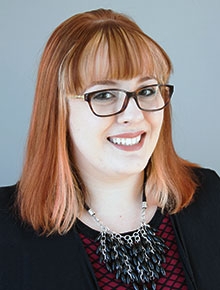
ROSEMARIE FIKE
OTTAWA – In countries with higher levels of economic freedom, people are less likely to subscribe to social norms that prioritize men over women in education, the labour force and political leadership, finds a new study published today by the Fraser Institute, an independent, non-partisan Canadian public policy think-tank.
In more economically free jurisdictions, the government permits individuals to make more of their own economic decisions—what to buy, what to sell, where to work, how to run a business, and so on—whereas in less economically free jurisdictions, politicians, bureaucrats, and regulators make more of these decisions.
“International Women’s Day is an opportune time to consider the relationship between economic freedom and those social norms that prioritize men over women in schools, the workforce and politics,” said Rosemarie Fike, senior fellow at the Fraser Institute, economics instructor at Texas Christian University, and author of Economic Freedom and Gender Norms.
The study uses data from the Fraser Institute’s annual Economic Freedom of the World Index. The index assesses economic freedom through 45 indicators gathered from each of 165 jurisdictions worldwide. Comparing this data with the World Values Survey, it finds that social norms concerning whether men should take priority when it comes to jobs, political leadership roles, and university enrollment are less likely to show a male bias in societies that are economically free.
Specifically, in countries with greater levels of economic freedom, people are less likely to agree with the following three statements:
1) “When jobs are scarce, men have more right to a job than women.”
2) “Men make better political leaders than women do.”
3) “University is more important for a man than a woman.”
“The evidence is clear—countries that embrace economic freedom are more likely to have gender norms that treat men and women more equally,” Fike said.
“By removing formal barriers to economic participation, economic freedom empowers us to challenge gender norms that discourage people of all gender identities from pursuing what they perceive as the best course of action for their own life.”
Rosemarie Fike is a Senior Fellow of the Fraser Institute.
Source: Fraser Institute


